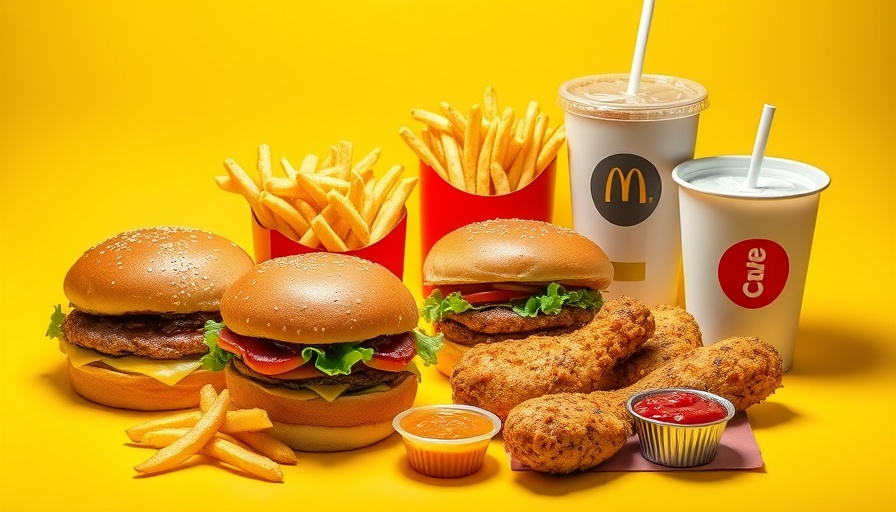
The Ultraprocessed Food Crisis: A Silent Epidemic
In recent years, ultraprocessed foods have quietly taken over grocery store aisles and, unfortunately, American diets. With 43% of grocery purchases attributed to these products, it's essential to understand the implications of this trend. Particularly striking is the finding that lower-income households tend to buy a disproportionate share of these foods. While their low cost and convenience make them appealing, the hidden dangers they carry can lead to significant health risks.
Understanding the Health Risks of Ultraprocessed Foods
Research has linked ultraprocessed foods to over 32 health conditions, including heart disease, obesity, depression, and metabolic dysfunction. These products are often stripped of essential nutrients and loaded with additives, making them more harmful than they appear. As consumption increases, so does the risk. Each serving of ultraprocessed foods heightens the chances of chronic diseases, creating a concerning cycle of health deterioration.
Impacts of Consumption Patterns on Health Disparities
The data gleaned from the comprehensive study highlights profound disparities in consumer behavior. For instance, packaged foods, sugary drinks, and snacks dominate the averages, where sodas alone account for a staggering 90% of ultraprocessed beverage purchases. Meanwhile, fresh fruits and vegetables represent a mere 12%, signaling a shift away from nourishing foods. This imbalance raises important questions about health equity and access to wholesome, minimally processed options.
Steps Toward Healthier Choices
With this information at hand, what can we do to take control of our diets and health? The first step is to minimize the intake of linoleic acid (LA), commonly found in ultraprocessed oils. The next is to rebuild gut health by integrating whole foods and healthy carbohydrates into our meals. Lastly, mindful shopping practices can help steer consumers towards real, nutritious food options.
Getting Involved: Advocate for Change
As consumers, it’s vital to recognize the power we hold in shaping our dietary habits and influencing food producers. By advocating for clearer food labeling, better access to fresh produce, and educating ourselves and our communities about nutrition, we can push back against the dominance of ultraprocessed foods. Every small change we make contributes to a larger movement towards a healthier society.
 Add Row
Add Row  Add
Add 




Write A Comment